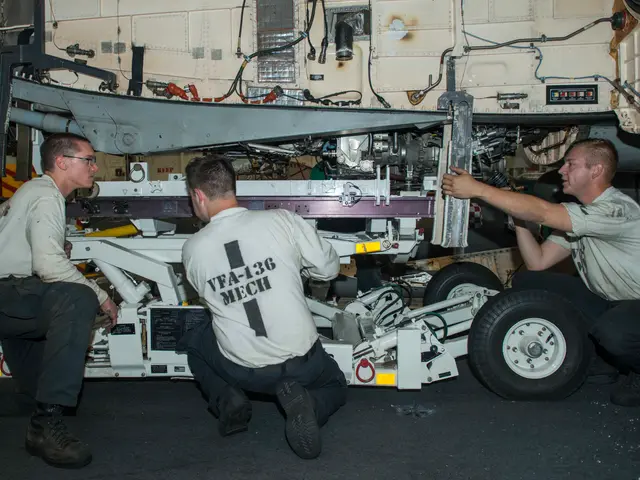Will Senate GOP members impede the reversal of the climate legislation?
In the halls of the Senate, a debate is brewing over the Inflation Reduction Act (IRA), a landmark piece of legislation that has led to hundreds of billions of dollars in clean energy and manufacturing development. Despite the bill's success, some Republican senators have expressed the desire to revise certain aspects, particularly criticizing provisions related to social programs, tax relief for renewable energy, and rising federal debt.
Chuck Grassley, representing wind turbine-dotted Iowa, has joined the fray, expressing interest in finding compromise on extending support for wind power. His stance echoes that of Sen. Jerry Moran of Kansas, who, along with Sens. Curtis, Murkowski, and Tillis, wrote a letter in April defending IRA tax credits.
The Senate is now considering the bill, and at least two GOP senators, John Curtis of Utah and Thom Tillis of North Carolina, have expressed concerns about the aggressive cuts in the current version of the bill. Curtis, in particular, has warned against a total IRA repeal, stating that it would pull the rug out from under American innovators.
One of the contentious issues is the House's provision that requires clean energy projects to start construction within 60 days of bill enactment or lose out on tax credits. The Senate is unlikely to stand by this requirement, and Bill Cassidy of Louisiana may attempt to change the House's proposed 60-day deadline for accessing tax credits.
Curtis and Tillis also want to revise the House's cuts to IRA production and investment tax credits, as well as a provision that bars companies with ties to China from accessing incentives. Elizabeth Ouzts reported that Tillis has expressed a desire for the Senate to address these issues.
Sen. Shelley Moore Capito, from West Virginia, aims to keep hydrogen incentives alive, while John Hoeven, North Dakota's senator, wants to preserve incentives for geothermal energy.
Interestingly, most of the benefits from the IRA have gone to regions represented in Congress by Republicans. This fact could signal a potential failure of the House's "backdoor repeal" of the landmark climate law.
Experts and regulators have expressed that the Trump administration's efforts to prop up fossil-fuel power plants are uneconomical and unwise. As the Senate continues its deliberations, it remains to be seen how these concerns will shape the final version of the Inflation Reduction Act.
In an op-ed, John Curtis warned against treating "good policy ideas as guilty by political association." He believes that many of the credits in the IRA are Republican policies that they fought to protect. His words serve as a reminder that, in the complex world of politics, compromise and understanding are key to finding solutions that benefit all.
Read also:
- Amidst India's escalating climate crisis, transgender individuals continue to persevere
- Contentious Discussion Surrounding the Movie Release of "Planet of the Humans"
- Germany's three-month tenure under Merz's administration feels significantly extended
- Norway set to allocate proceeds from sales of tickets for a soccer match against Israel to Médecins Sans Frontières (MSF)








